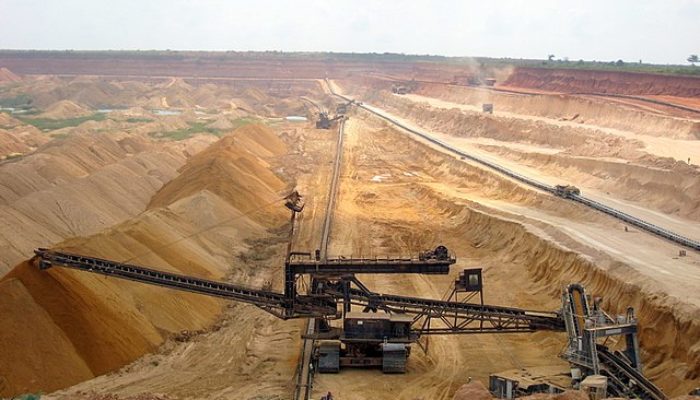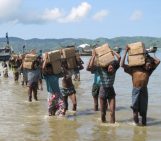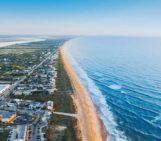
Each month, Jesse Zondervan picks his favourite posts from geoscience and development blogs/news which cover the geology for global development interest. Here’s a round-up of Jesse’s selections for the last month:
Minimising disaster risk has two dimensions, understanding the hazard and targeting people’s behaviour. Therefore to prevent volcanoes killing people, researchers have studied why people return to dangerous volcanoes during evacuation periods, and have developed an approach to leverage the forecasting techniques used in weather forecasting, to predict volcanic behaviour.
Disasters are most harmful to those with fewer resources. Fortunately, great process is being made in the East Africa region, where the water resource sector, road sector, and various stakeholders communicate with meteorologists to provide impact-based forecasting. Thus, a forecast might read:
“50mm of rainfall falling in Western Kenya on Thursday will lead to some flooding of homes in Kisumu, and will disrupt transport and agriculture. Vulnerable people close to river valleys may want to consider moving to higher ground temporarily”
Read more about countries most vulnerable to hazards: Least Developed Countries (LDCs), Landlocked Developing Countries (LLDCs) and Small Island Developing States (SIDS), and which challenges they face.
Integrating climate science into finance
Climate change continues to be in the news, and the economic sector is waking up to the cost of consequences. However, economists are still downplaying major risks according to a new report by Columbia University’s Earth Institute, Germany’s Potsdam Institute for Climate Impact Research, and the UK’s Grantham Research Institute on Climate Change and the Environment.
The simplified and business-as-usual economic assessments don’t take into account the severity of impacts when thresholds in Earth systems are exceeded, resulting in a potential for mass migration and conflict.
Bad news too for pensions and government funds, many of which invest in index funds, which face unmanageable risk from climate change, according to the director of Stanford University’s Sustainable Finance Initiative. They have a need for more science-based climate policy.
That’s why companies such as Four Twenty Seven’s combined economic modelling with climate science. Their analysis shows some of Europe’s main office areas are at risk to flooding and heat extremes, leading up to a potential of over €1 trillion in damage.
More on how climate experts judge geoengineering, how the geological resource of phosphate cycles through our food system (yes we eat rocks), and how more rainwater can lead to less water available to people along the Nile.
As ever, there is more to explore, check below for more news and ideas.
Climate Change Adaptation
You Asked: How Can Students Make a Difference on Climate Change? At the Earth Institute
Planting the seeds of science diplomacy by Cristina Serra at The World Academy of Sciences
Real Estate Climate Risks: How Will Europe be Impacted? By Léonie Chatain at FourTwentySeven
Economists Are Downplaying Many Major Climate Risks, Says Report at the Earth Institute
Climate Change and Migration in Vulnerable Countries by Mariam Traore Chazalnoël at the UN Sustainable Development Blog
Big Data, Rising Tides: How Advances in Free Remote Sensing Technology Can Help Cities to Prepare for Climate Change by Ran Goldblatt and Nicholas Jones at GIM International
Fund Managers Failed To Anticipate Climate Risk That Led To PG&E Bankruptcy by Jeff McMahon at Forbes
Benefits of Adaptation Measures Outweigh the Costs, Report Says by Maya Earls at E&E News
Sustainability
Not all meat is created equal: How diet changes can sustain world’s food production at the Stevens Institute of Technology
Large transnational corporations play critical role in global natural resource management at Oregon State University
More rain yet less water expected for up to 250 million people along the Nile at Dartmouth College
Geoengineering
How do climate experts think about geoengineering? They get personal. by Sarah DeWeerdt at Anthropocene magazine
Disaster Risk
Volcanoes kill more people long after they first erupt – those deaths are avoidable at The Conversation
New volcanic eruption forecasting technique at the University of Illinois
Impact Based Forecasting is set to save lives and livelihoods in East Africa by George Achia at the Climate & Development Knowledge Network
External Opportunities
The Climate & Development Knowledge Network at the African Climate Risks Conference in Addis Ababa
First-of-its-kind Curriculum Will Focus on Climate Risk and Investment Research at the Earth Institute, Columbia University
Earth Institute Postdoctoral Research Program Now Accepting Applications for 2020
Check back next month for more picks!
Follow Jesse Zondervan @JesseZondervan. Follow us @Geo_Dev & Facebook.



